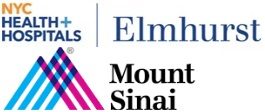Interns in the Adult Track will complete four rotations of 3-month duration. There are six full-time positions.
As our program is grant-funded, Adult Track interns will be provided exposure to the integration of behavioral health and Opioid Use Disorders/Substance Use disorders (OUD/SUD) prevention and treatment services in the Dual Diagnosis Inpatient Unit and outpatient group work in Methadone Program/Chemical Dependency Program in ABHS. In addition, interns can choose from other rotations including the Comprehensive Psychiatric Emergency Program (CPEP); Adult or Adolescent Inpatient Unit, Child Partial Hospitalization Program (PHP), Women’s Forensic Unit, and Outpatient Integrated. Preferences will be taken into consideration.
In addition to the above-mentioned rotation work, the intern will also carry a caseload of 5 outpatient hours, including individuals, group and couples/family work. The majority of the intern’s caseload will include adult psychotherapy, although there may be an opportunity for child/adolescent work as well. The intern will also be completing intakes throughout a portion of the year through the adult outpatient clinic.
In addition to individual and group supervision on rotation and for outpatient cases, the Adult Track interns will attend a number of didactic training seminars from within the psychology and psychiatry divisions, including weekly staff meeting, testing seminar, case conference, and other specialty seminars scheduled throughout the year.
The ideal applicant for this program will have a range of previous clinical experiences with adults that include or are similar to the following: hospital inpatient work, day treatment program work, work with severely and persistently mentally ill patients, and multiple assessment experiences resulting in several integrated assessment batteries. Furthermore, applicants should be hard-working, have excellent time management and organizational skills, desire work within a fast-paced urban hospital setting, and be interested in gaining extensive knowledge in treatment of severely disturbed patients from a wide variety of cultural backgrounds.
